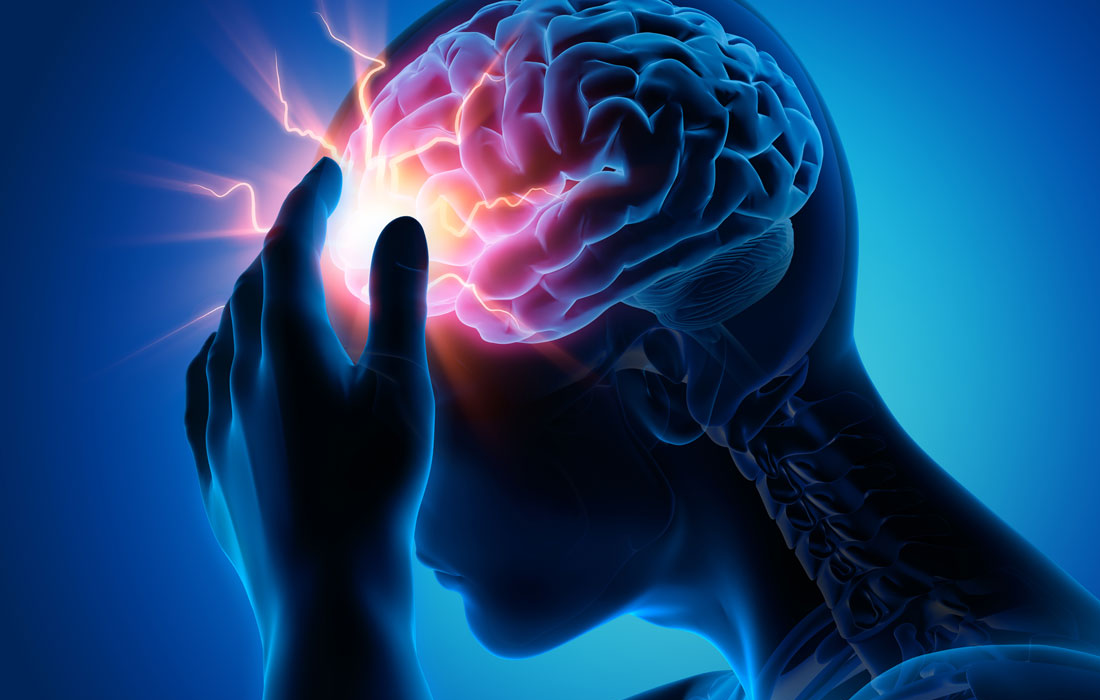Stem Cell Therapy for Specific Conditions
Stem Cell Therapy After a Stroke

What is a Stroke?
A stroke occurs when the blood supply to part of the brain is interrupted or reduced, preventing brain tissue from getting oxygen and nutrients. Brain cells begin to die in minutes, that is why it’s a medical emergency, and prompt treatment is crucial. Early action can reduce brain damage and other complications.
The United States experiences approximately 795,000 S per year, more than a stroke-per-minute, including 165,000 recurring strokes. Of these 795,000S, 28.7% ultimately lead to mortality. The vast majority of strokes are ischemic, accounting for 87% of all strokes, with intracranial and subarachnoid hemorrhages accounting for the remaining 10% and 3% respectively.
What Causes a Stroke?
There are 2 main causes of stroke: an ischemic stroke, when an artery’s blood flow is blocked, and a hemorrhagic stroke when a blood vessel leaks or bursts. The disruption in blood flow can be temporary, known as a transient ischemic attack (TIA), that doesn’t cause lasting symptoms.
Ischemic Stroke
This is the most common type of stroke. It happens when the brain’s blood vessels become narrowed or blocked, causing severely reduced blood flow (ischemia). Blocked or narrowed blood vessels are caused by fatty deposits that build up in blood vessels or by blood clots or other debris that travel through your bloodstream and lodge in the blood vessels in your brain.
Hemorrhagic Stroke
Hemorrhagic stroke occurs when a blood vessel in your brain leaks or ruptures. Brain hemorrhages can result from many conditions that affect your blood vessels. Factors related to hemorrhagic stroke include:
- Uncontrolled high blood pressure.
- Overtreatment with blood thinners (anticoagulants).
- Bulges at weak spots in your blood vessel walls (aneurysms).
- Trauma (such as a car accident).
- Protein deposits in blood vessel walls that lead to weakness in the vessel wall (cerebral amyloid angiopathy).
- Ischemic stroke leading to hemorrhage.
What are Common Signs and Symptoms?
Some signs and symptoms that can occur when having a stroke are:
- Trouble speaking and understanding what others are saying.
- Paralysis or numbness of the face, arm, or leg.
- Problems seeing in one or both eyes.
- Severe headache, accompanied by vomiting, dizziness, or altered consciousness.
- Trouble walking.
Complications of a Stroke
A stroke can cause temporal or permanent disabilities, depending on how long the brain lacks blood flow and which part is affected. Some complications can include:
- Paralysis or loss of muscle movement.
- Difficulty talking or even swallowing.
- Memory loss or thinking difficulties.
- Emotional problems.
- Pain or numbness.
- Behavioral changes.
- Death.
Current Treatment Options
Current options are divided between those during the acute stroke and the treatment of complications of the stroke. The treatment varies depending on the type of stroke that the patient is having. An ischemic stroke can be treated with an IV injection with medications such as alteplase, a recombinant tissue plasminogen activator (tPA) to break up the clot, especially when given 4.5 hours from the beginning of the symptoms.
Another treatment option is endovascular procedures, in which doctors insert a long catheter through an artery to remove the clot.
In the case of hemorrhagic strokes, the treatment includes drugs or transfusions of blood products to counteract the effect of blood thinners if the patient is taking them. When the bleeding area is large, the treatment is normally surgical.
After the emergency treatment, the treatment focuses on the complications and it includes rehabilitation programs and a multidisciplinary approach with neurologists, physiatrists, dietitians, speech pathologists, and occupational therapists.
Regenerative Medicine Therapy
Stroke and other neurological disorders are triggered by a loss of neurons and glial cells. Existing therapies are incapable of adequately relieving the disease outcome and are not appropriate to all patients.
Cell therapy is emergent as a hopeful new modality for increasing neurological recovery in ischemic stroke. Numerous types of stem cells from various sources have been identified and their possibility and efficiency for the treatment of stroke have been investigated.
Bone marrow stem cells (BMSC) and mesenchymal stem cells (MSC) have been shown to enhance neurogenesis in pre-clinical models in intracerebral transplantations. Intravenous and intraarterial administration of BMSC and MSC have shown promise, where their effects are largely mediated through neuroprotective mechanisms. The immune system has been implicated in exacerbating initial damage caused by stroke, and MSC has demonstrated immunomodulatory properties capable of helping reduce inflammation and potentially improving recovery.
MSCs can promote the healing and growth of neurons, protecting them from further damage and cell death. They can cross the blood-brain barrier (BBB) and specially migrate to the injured sites, slow down the apoptosis process, raise basic fibroblast growth factor and stimulate endogenous cellular proliferation.
Clinical Trials
Ten clinical trials of intravascular delivery of the cells, containing 136 subjects, have been described to date. Functional development has been seen in several studies without any important adverse events.
In an open‐label, single‐blinded randomized trial, 50 to 60 million autologous MSCs suspended in 250 mL of saline were infused intravenously between 3 months and 2 years after stroke. This study presented important improvement in functional consequence according to the Modified Rankin Scale (mRS) in the treatment group. In this study, the lesion volume was decreased by 20% and extraordinarily, no tumorigenesis and venous embolism were revealed. The outcome clearly illustrated the hopeful possible use of MSCs in clinical settings.
Sources:
https://www.mayoclinic.org/diseases-conditions/stroke/symptoms-causes/syc-20350113
Chrostek, M. R., Fellows, E. G., Crane, A. T., Grande, A. W., & Low, W. C. (2019). Efficacy of stem cell-based therapies for stroke. Brain research, 1722, 146362. https://doi.org/10.1016/j.brainres.2019.146362
Rikhtegar R, Yousefi M, Dolati S, Kasmaei HD, Charsouei S, Nouri M, Shakouri SK. Stem cell-based cell therapy for neuroprotection in stroke: A review. J Cell Biochem. 2019 Jun;120(6):8849-8862. doi: 10.1002/jcb.28207. Epub 2018 Dec 2. PMID: 30506720.
Image from:
https://www.whatsdoc.com/blogs/stroke-pitting-quick-action-against-severity

